Addressing Compliance Issues in a Pharmaceutical Distribution Chain
Addressing Compliance Issues in a Pharmaceutical Distribution Chain
Introduction
The pharmaceutical distribution chain in Nigeria must tackle compliance issues at Business Depot Consulting because regulatory adherence protects pharmaceutical products from harm and ensures their safe delivery. Adhering to laws and regulations, and standards that governing bodies set, is the core definition of compliance for pharmaceutical product safety and quality in the distribution process. Failure to comply creates substantial risks that include major legal expenses, along with financial damage and shattered reputational value, while endangering community health.
The pharmaceutical distribution chain functions as the entire sequence of organizations which move pharmaceutical medications from manufacturers to consumers. Manufacturers and wholesalers, as well as distributors and retailers, plus logistics providers, participate in the distribution system of pharmaceutical products. Every entity in the distribution system maintains vital functions for upholding safe, legal product distribution and inventory storage as well as retail operations.
The National Agency for Food and Drug Administration and Control (NAFDAC), together with other authorities, functions as the main regulator of pharmaceutical distribution throughout Nigeria. NAFDAC regulates food and drugs along with other related product,s through an entirely responsible system that prevents substandard items from reaching consumers in Nigeria. The healthcare of the populace and the pharmaceutical market’s ethical standards depend entirely on strict compliance with these mandated regulations.
Business Depot Consulting strives to assist your organization in managing Addressing Compliance Issues in a Pharmaceutical Distribution Chain in Nigeria through regulatory compliance support that ensures full adherence to legal requirements. This article will discuss strategies to handle compliance effectively for business and public health protection.
Regulatory Framework
When Addressing Compliance Issues in a Pharmaceutical Distribution Chain in Nigeria, it’s essential to understand the legal and regulatory framework that governs the sector. In Nigeria, this framework is designed to ensure that pharmaceutical products are safe, effective, and of the highest quality. The National Agency for Food and Drug Administration and Control (NAFDAC) is the primary regulatory authority responsible for enforcing these standards.
- Overview of Relevant Regulations and Laws: NAFDAC oversees and enforces the regulations that govern the importation, manufacture, distribution, and sale of pharmaceutical products in Nigeria. These regulations are aligned with international best practices and local laws, such as the Pharmacy and Poisons Act and the Drug Control Act, which provide guidelines on the proper handling and distribution of pharmaceuticals. Additionally, adherence to Good Distribution Practices (GDP) and Good Manufacturing Practices (GMP) is critical for ensuring that drugs are distributed under controlled conditions that maintain their quality and safety.
- Understanding Compliance Requirements for Pharmaceutical Distribution: To comply with the regulatory framework, entities in the pharmaceutical distribution chain must meet several critical requirements, such as proper labeling, accurate record-keeping, and adherence to safety standards. Compliance also involves ensuring the appropriate storage conditions, handling of products, and following procedures for reporting product defects or recalls. By understanding these requirements, companies can avoid violations, fines, and disruptions to their operations.
Licensing and Certification
One of the most important aspects of Addressing Compliance Issues in a Pharmaceutical Distribution Chain in Nigeria is ensuring that all entities in the supply chain are properly licensed and certified to handle and distribute pharmaceutical products.
- Ensuring All Entities in the Distribution Chain Are Properly Licensed and Certified: Every player in the pharmaceutical distribution chain, from manufacturers and wholesalers to distributors and retailers, must obtain the necessary licenses and certifications from the relevant regulatory bodies. These include NAFDAC-approved licenses that authorize companies to import, distribute, and sell pharmaceutical products. In addition, distributors must ensure that they adhere to international standards such as GDP and GMP certifications, which are required for operating legally within Nigeria and globally.
- Verification of Licenses and Certifications: It is crucial to verify that all parties involved in the distribution process hold valid and up-to-date licenses and certifications. This verification process can be done through online platforms provided by NAFDAC or by directly inspecting documents. Regular audits and inspections can help ensure compliance is maintained throughout the distribution chain, reducing the risk of legal issues and enhancing the overall integrity of the supply chain.
We specialize in Addressing Compliance Issues in a Pharmaceutical Distribution Chain in Nigeria. Our expertise can help you navigate the regulatory landscape, ensure that all licenses and certifications are in place, and maintain strict compliance across the distribution chain, ensuring safe and effective delivery of pharmaceutical products to the Nigerian market.
Product Authentication and Verification
In the pharmaceutical distribution chain, ensuring the authenticity of pharmaceutical products is critical to maintaining public trust and ensuring the safety of consumers. Counterfeit drugs pose a significant risk to both health and the reputation of the industry. Addressing Compliance Issues in a Pharmaceutical Distribution Chain in Nigeria requires robust measures for product authentication and verification.
- Implementing Systems to Verify Authenticity of Pharmaceutical Products: A vital part of ensuring compliance is the use of effective systems to verify the authenticity of pharmaceutical products at each stage of the distribution chain. Implementing technologies such as Radio Frequency Identification (RFID), barcoding, and serial number tracking allows for real-time verification of products as they move through the supply chain. These systems help confirm that the pharmaceutical products being distributed are genuine and meet regulatory standards. Furthermore, digital platforms or authentication codes provided by manufacturers can help verify products at the point of sale or distribution.
- Detection and Prevention of Counterfeit Products: Counterfeit drugs are a major concern in Nigeria’s pharmaceutical sector. To address this, companies must implement strategies for detecting and preventing counterfeit products from entering the supply chain. This involves regular inspections, collaboration with law enforcement agencies, and using technologies that can help identify counterfeit drugs before they reach consumers. Counterfeit detection systems, such as holograms, unique QR codes, or tamper-evident packaging, are essential in preventing the distribution of fake or substandard products.
Supply Chain Security
Ensuring the security of the entire pharmaceutical supply chain is another critical component of Addressing Compliance Issues in a Pharmaceutical Distribution Chain in Nigeria. The security of products during storage, transportation, and handling is vital to preventing theft, tampering, and contamination.
- Measures to Prevent Theft, Tampering, and Contamination: Safeguarding pharmaceutical products against theft, tampering, and contamination requires strict protocols and advanced security systems. This includes installing surveillance systems, employing secure access controls to warehouses and distribution centers, and ensuring that only authorized personnel handle the products. Regular audits and monitoring systems should be in place to detect any discrepancies or suspicious activities. Additionally, tamper-evident packaging and seals can provide additional layers of security, ensuring that products are not compromised before reaching their final destination.
- Secure Storage and Transportation Practices: Secure storage and transportation of pharmaceutical products are critical to maintaining their quality and compliance with regulatory standards. Pharmaceutical products must be stored under controlled conditions, including specific temperature and humidity levels, to preserve their integrity. This includes using temperature-controlled storage and refrigerated transportation when necessary. Secure transportation practices also include monitoring vehicles for unauthorized access, ensuring that products are sealed and tracked during transit, and using GPS tracking for real-time location monitoring.
We help companies in the pharmaceutical distribution chain address compliance issues effectively. Our expertise ensures that systems for product authentication, verification, and supply chain security are in place, preventing counterfeit products, theft, contamination and ensuring the safe and secure movement of pharmaceuticals throughout Nigeria.
- Temperature Control and Monitoring
For many pharmaceutical products, maintaining the proper temperature is essential to ensure their safety, efficacy, and compliance with regulatory standards. Addressing Compliance Issues in a Pharmaceutical Distribution Chain in Nigeria involves implementing robust systems to monitor and control temperature throughout the distribution process, ensuring that temperature-sensitive products are handled with care.
- Ensuring Proper Temperature Control and Monitoring Throughout the Distribution Chain: Pharmaceuticals, particularly biologics, vaccines, and some injectable medications, require strict temperature control to prevent degradation or loss of potency. It’s critical to implement a cold chain system that maintains a controlled temperature environment throughout the entire distribution chain—from manufacturing to final delivery. Temperature-controlled warehouses, refrigerated trucks, and specialized packaging are necessary to ensure that temperature-sensitive products are transported and stored within the required temperature range. Continuous monitoring systems, such as temperature data loggers and real-time sensors, should be used to track the temperature during transit and storage, ensuring compliance with required conditions.
- Compliance with Temperature-Sensitive Product Requirements: Regulatory bodies like NAFDAC have specific guidelines for handling temperature-sensitive pharmaceutical products. Compliance with these regulations is mandatory for preventing any damage to products that could potentially harm patients or lead to legal liabilities. Organizations should stay up-to-date with these guidelines, implement necessary training programs for personnel, and regularly audit their cold chain systems to ensure full compliance with temperature-sensitive product requirements. Proper documentation and record-keeping of temperature readings should also be maintained for regulatory inspections.
- Documentation and Record-Keeping
Accurate and detailed documentation is a cornerstone of Addressing Compliance Issues in a Pharmaceutical Distribution Chain in Nigeria. From tracking products to verifying regulatory compliance, maintaining comprehensive records is essential for transparency, accountability, and ensuring the legal distribution of pharmaceutical products.
- Accurate and Detailed Record-Keeping of Products, Transactions, and Shipments: The pharmaceutical distribution chain involves various transactions, including the movement of goods between manufacturers, wholesalers, distributors, and retailers. Each transaction must be documented thoroughly, detailing product batches, expiration dates, quantities, handling conditions, and delivery information. This information is critical for ensuring traceability in case of product recalls, disputes, or inspections by regulatory authorities. Furthermore, these records support quality control efforts and facilitate inventory management, helping companies reduce errors and improve efficiency.
- Compliance with Documentation Requirements: NAFDAC and other regulatory bodies require pharmaceutical companies to maintain accurate records of transactions, storage conditions, and shipments for a defined period. Compliance with these documentation requirements helps ensure that businesses are meeting legal obligations and maintaining proper oversight of their operations. Companies should implement electronic documentation systems that capture all required data and enable easy retrieval during audits or regulatory inspections. Additionally, these systems should be integrated with other compliance measures, such as temperature monitoring and licensing verification, to provide a comprehensive approach to regulatory adherence.
We are dedicated to helping you navigate the complexities of Addressing Compliance Issues in a Pharmaceutical Distribution Chain in Nigeria. Our expert guidance ensures that you maintain proper temperature control, monitoring, and documentation throughout the entire distribution process, minimizing risks and ensuring full compliance with Nigerian pharmaceutical regulations.
Temperature Control and Monitoring
For many pharmaceutical products, maintaining the proper temperature is essential to ensure their safety, efficacy, and compliance with regulatory standards. Addressing Compliance Issues in a Pharmaceutical Distribution Chain in Nigeria involves implementing robust systems to monitor and control temperature throughout the distribution process, ensuring that temperature-sensitive products are handled with care.
- Ensuring Proper Temperature Control and Monitoring Throughout the Distribution Chain: Pharmaceuticals, particularly biologics, vaccines, and some injectable medications, require strict temperature control to prevent degradation or loss of potency. It’s critical to implement a cold chain system that maintains a controlled temperature environment throughout the entire distribution chain—from manufacturing to final delivery. Temperature-controlled warehouses, refrigerated trucks, and specialized packaging are necessary to ensure that temperature-sensitive products are transported and stored within the required temperature range. Continuous monitoring systems, such as temperature data loggers and real-time sensors, should be used to track the temperature during transit and storage, ensuring compliance with required conditions.
- Compliance with Temperature-Sensitive Product Requirements: Regulatory bodies like NAFDAC have specific guidelines for handling temperature-sensitive pharmaceutical products. Compliance with these regulations is mandatory for preventing any damage to products that could potentially harm patients or lead to legal liabilities. Organizations should stay up-to-date with these guidelines, implement necessary training programs for personnel, and regularly audit their cold chain systems to ensure full compliance with temperature-sensitive product requirements. Proper documentation and record-keeping of temperature readings should also be maintained for regulatory inspections.
Documentation and Record-Keeping
Accurate and detailed documentation is a cornerstone of Addressing Compliance Issues in a Pharmaceutical Distribution Chain in Nigeria. From tracking products to verifying regulatory compliance, maintaining comprehensive records is essential for transparency, accountability, and ensuring the legal distribution of pharmaceutical products.
- Accurate and Detailed Record-Keeping of Products, Transactions, and Shipments: The pharmaceutical distribution chain involves various transactions, including the movement of goods between manufacturers, wholesalers, distributors, and retailers. Each transaction must be documented thoroughly, detailing product batches, expiration dates, quantities, handling conditions, and delivery information. This information is critical for ensuring traceability in case of product recalls, disputes, or inspections by regulatory authorities. Furthermore, these records support quality control efforts and facilitate inventory management, helping companies reduce errors and improve efficiency.
- Compliance with Documentation Requirements: NAFDAC and other regulatory bodies require pharmaceutical companies to maintain accurate records of transactions, storage conditions, and shipments for a defined period. Compliance with these documentation requirements helps ensure that businesses are meeting legal obligations and maintaining proper oversight of their operations. Companies should implement electronic documentation systems that capture all required data and enable easy retrieval during audits or regulatory inspections. Additionally, these systems should be integrated with other compliance measures, such as temperature monitoring and licensing verification, to provide a comprehensive approach to regulatory adherence.
We are dedicated to helping you navigate the complexities of Addressing Compliance Issues in a Pharmaceutical Distribution Chain in Nigeria. Our expert guidance ensures that you maintain proper temperature control, monitoring, and documentation throughout the entire distribution process, minimizing risks and ensuring full compliance with Nigerian pharmaceutical regulations.
Training and Education
One of the most crucial steps in Addressing Compliance Issues in a Pharmaceutical Distribution Chain in Nigeria is ensuring that personnel are well-informed and capable of adhering to regulatory standards. Training and education are key to maintaining a compliant and efficient distribution process.
- Providing Training and Education to Personnel on Compliance Requirements: All employees involved in the pharmaceutical distribution chain must understand the regulatory requirements that apply to their specific roles. This includes training on topics such as proper documentation, handling of temperature-sensitive products, product verification, and the importance of maintaining a secure supply chain. Regular training programs should be designed to keep employees up-to-date with the latest regulatory changes and best practices in the pharmaceutical industry.
- Ensuring Awareness of Regulatory Requirements and Best Practices: To ensure compliance, employees need to be aware of the relevant regulatory bodies and their guidelines, such as NAFDAC, and how those regulations affect their work. Establishing a culture of compliance through ongoing education helps prevent errors, minimizes legal risks, and ensures that all aspects of the distribution chain operate according to the law. In addition, providing employees with access to training on quality control, counterfeit detection, and handling emergencies can further safeguard the business from compliance issues.
Quality Control and Assurance
Ensuring that pharmaceutical products maintain the highest standards of quality is a cornerstone of any compliant distribution chain. Addressing Compliance Issues in a Pharmaceutical Distribution Chain in Nigeria requires businesses to implement effective quality control and assurance processes throughout the supply chain.
- Implementing Quality Control and Assurance Processes: Quality control (QC) and quality assurance (QA) processes are essential in preventing substandard or unsafe pharmaceutical products from entering the market. Implementing strict quality control measures at every stage of the distribution process, from manufacturing to final delivery, ensures that products meet all regulatory standards. This includes conducting regular inspections, using proper storage and handling techniques, and maintaining proper documentation. Additionally, ensuring that staff follow Good Distribution Practices (GDP) and Good Manufacturing Practices (GMP) is crucial for maintaining product quality.
- Ensuring Products Meet Quality Standards: Compliance with quality standards is essential for consumer safety. Pharmaceutical products must meet specific standards set by NAFDAC and international regulatory bodies. To ensure this, businesses should employ quality assurance systems, such as routine product testing, batch sampling, and certifications. Regular testing helps identify potential issues before products reach the market and ensures that only high-quality products are distributed to consumers.
Audit and Compliance Monitoring
Regular audits and continuous monitoring are essential in Addressing Compliance Issues in a Pharmaceutical Distribution Chain in Nigeria. By conducting thorough audits, businesses can ensure that they are operating in full compliance with all regulatory requirements and are maintaining the highest standards of safety and quality.
- Regular Audits and Monitoring to Ensure Compliance: Regular internal audits and external inspections are critical to assessing the effectiveness of compliance measures in place within the pharmaceutical distribution chain. These audits help identify areas where the distribution process may fall short of regulatory requirements, allowing businesses to take corrective action before violations occur. Compliance monitoring tools, such as automated data tracking and compliance software, can help companies monitor ongoing adherence to laws and regulations and identify potential non-compliance issues early.
- Identification and Addressing of Compliance Issues: Audits not only help in identifying compliance issues but also serve as a mechanism for addressing those issues effectively. When an audit reveals discrepancies, businesses must take swift action to rectify them. This might include revising internal policies, providing additional staff training, upgrading systems, or even reporting violations to regulatory authorities. Continuous monitoring ensures that any issues are identified quickly and rectified before they escalate into more significant problems.
We specialize in Addressing Compliance Issues in a Pharmaceutical Distribution Chain in Nigeria. We help you implement effective training programs, quality control systems, and compliance monitoring processes that keep your distribution chain fully compliant with Nigerian pharmaceutical regulations. Our approach ensures that your operations run smoothly, legally, and safely, mitigating risks and enhancing your business’s reputation.
Corrective Action and Continuous Improvement
When compliance issues are identified within the pharmaceutical distribution chain, it is essential to implement corrective actions to address the problems promptly. Addressing Compliance Issues in a Pharmaceutical Distribution Chain in Nigeria involves continuous efforts to improve processes and prevent future occurrences.
- Implementing Corrective Actions for Compliance Issues: Upon identifying a compliance issue, immediate corrective actions should be taken to address the root cause of the problem. This can include revising procedures, enhancing staff training, upgrading technology, or even reconfiguring the supply chain. Corrective actions should be well-documented, and clear timelines must be set for resolving the issue. This ensures accountability and minimizes the risk of recurrence. After implementing corrective actions, companies should track the effectiveness of these changes to ensure that the issue has been resolved adequately.
- Continuous Improvement of Compliance Processes and Procedures: The pharmaceutical industry is constantly evolving, with regulations and best practices changing over time. Continuous improvement is essential to stay ahead of these changes and ensure compliance. This involves regularly reviewing and updating compliance processes and procedures to make sure they align with new regulatory requirements. Regular internal reviews and feedback loops from staff and partners can provide valuable insights that drive ongoing improvements. By adopting a culture of continuous improvement, companies can not only stay compliant but also enhance operational efficiency and product quality.
Risk Assessment and Management
Risk management is a fundamental aspect of Addressing Compliance Issues in a Pharmaceutical Distribution Chain in Nigeria. Understanding and mitigating risks in the distribution chain is crucial for preventing disruptions and ensuring the safety of pharmaceutical products.
- Identifying Potential Risks in the Distribution Chain: Every stage of the pharmaceutical distribution process carries certain risks that could lead to compliance issues. These include supply chain interruptions, counterfeit products, theft, contamination, and improper storage conditions. Identifying these risks requires a comprehensive assessment of the entire distribution chain, from sourcing raw materials to final product delivery. A detailed risk assessment allows companies to pinpoint vulnerabilities and proactively implement measures to address them.
- Developing Strategies to Mitigate Risks: Once risks are identified, it’s important to develop strategies to mitigate or eliminate them. This may include implementing stricter security protocols, improving training programs, adopting advanced technologies for product verification, or working with trusted, compliant suppliers. Companies should also establish contingency plans to manage unforeseen risks, such as sudden regulatory changes, supply shortages, or natural disasters. By developing and executing comprehensive risk management strategies, businesses can ensure that their distribution processes remain compliant and efficient, even in the face of challenges.
Supplier Qualification and Management
In the pharmaceutical distribution chain, the quality and compliance of suppliers are essential to the overall success of the business. Ensuring that suppliers meet regulatory standards is a critical component of Addressing Compliance Issues in a Pharmaceutical Distribution Chain in Nigeria.
- Evaluating and Qualifying Suppliers: Selecting the right suppliers is fundamental to ensuring the safety, quality, and compliance of pharmaceutical products. Evaluating suppliers involves assessing their ability to meet regulatory requirements, quality standards, and delivery timelines. Supplier qualification checks should include verifying that suppliers hold the necessary licenses, certifications, and compliance records. It is also important to assess their track record in maintaining compliance and adhering to safety and quality standards. A thorough vetting process helps ensure that only reliable and compliant suppliers are part of the distribution chain.
- Ensuring Suppliers Meet Compliance Requirements: After selecting suppliers, it is crucial to continuously monitor their compliance status. This involves conducting regular audits and inspections of supplier facilities, verifying that they adhere to all relevant regulations, and ensuring that the products they provide meet quality standards. Businesses should also establish clear contracts that outline compliance expectations and penalties for non-compliance. Supplier management processes should include regular communication, feedback loops, and a review of performance to ensure that suppliers are consistently meeting compliance requirements.
We are committed to Addressing Compliance Issues in a Pharmaceutical Distribution Chain in Nigeria by helping businesses implement corrective actions, improve compliance processes, manage risks effectively, and work with reliable, qualified suppliers. Our expert guidance ensures that your pharmaceutical distribution network is compliant, secure, and operates smoothly in line with all regulatory requirements.
Product Recall Procedures
When a pharmaceutical product is found to be non-compliant or unsafe, having an effective product recall procedure is essential for ensuring consumer safety and maintaining regulatory compliance. Addressing Compliance Issues in a Pharmaceutical Distribution Chain in Nigeria requires businesses to establish clear and efficient procedures for recalling products when necessary.
- Establishing Procedures for Product Recalls: It’s vital for businesses in the pharmaceutical distribution chain to have a well-documented product recall procedure in place. This procedure should outline the steps to be taken when a product is found to be defective or non-compliant with regulatory standards. It should include identifying affected batches, notifying distributors, retailers, and consumers, and removing the products from the market. Additionally, a clear chain of communication should be established to ensure that all stakeholders are informed promptly and that the recall is managed effectively.
- Ensuring Timely and Effective Recall of Non-Compliant Products: The speed at which a product is recalled is critical to preventing harm to consumers and mitigating the business’s liability. Businesses must establish protocols to quickly identify products that need to be recalled, including an efficient tracking system that can pinpoint affected products by batch number, expiration date, and distribution route. Having a rapid response team in place is also essential to ensure that the recall is executed without delays and all non-compliant products are effectively removed from circulation.
Compliance with Good Distribution Practices (GDP)
Adhering to Good Distribution Practices (GDP) is essential for ensuring that pharmaceutical products are consistently handled in a compliant and quality-assured manner throughout the distribution process. Addressing Compliance Issues in a Pharmaceutical Distribution Chain in Nigeria means implementing GDP guidelines to meet both local and international regulatory standards.
- Implementing GDP Guidelines: Good Distribution Practices (GDP) provide the framework for the proper handling, storage, and transportation of pharmaceutical products. Compliance with GDP guidelines ensures that products maintain their integrity, safety, and efficacy throughout the distribution process. This includes proper storage conditions, temperature control, inventory management, and security measures to prevent theft or tampering. Establishing GDP protocols also requires training employees on best practices and performing regular audits to ensure that all distribution activities are compliant with GDP guidelines.
- Ensuring Compliance with International Standards: While local regulations, such as those set by NAFDAC, are crucial for ensuring compliance within Nigeria, international standards are also critical for businesses that operate globally. Compliance with international GDP standards, such as those outlined by the World Health Organization (WHO) or the European Medicines Agency (EMA), ensures that Nigerian distributors are aligned with global best practices and that their products can be exported without regulatory challenges. Businesses should regularly update their distribution processes to reflect the latest international standards and ensure that their operations meet the highest levels of quality and safety.
Technology and Track-and-Trace Systems
Utilizing technology is an essential aspect of Addressing Compliance Issues in a Pharmaceutical Distribution Chain in Nigeria, enabling companies to enhance visibility, control, and traceability throughout the entire supply chain.
- Utilizing Technology to Track and Trace Products: Technology plays a vital role in improving the accuracy and efficiency of tracking pharmaceutical products throughout the distribution process. Implementing track-and-trace systems allows businesses to monitor each product’s movement from manufacturing to end-user delivery. These systems can help verify product authenticity, monitor environmental conditions during transit (such as temperature and humidity), and provide real-time updates on product location. Technologies such as barcodes, RFID (Radio Frequency Identification), and blockchain can further enhance the traceability of pharmaceutical products, ensuring full transparency and compliance with regulatory requirements.
- Enhancing Visibility and Control Throughout the Distribution Chain: Track-and-trace systems give businesses enhanced visibility into their supply chain, enabling them to identify potential risks, such as theft, spoilage, or counterfeiting, at an early stage. By maintaining detailed records of every movement and transaction, businesses can ensure that all products comply with regulatory requirements and any potential issues can be resolved swiftly. Real-time tracking also enables businesses to respond quickly to incidents, such as product recalls, and maintain a higher level of customer confidence. This technological approach enhances overall control over the distribution process, ensuring that all operations are fully compliant and efficient.
Collaboration with Regulatory Authorities
Effective collaboration with regulatory authorities is a fundamental aspect of Addressing Compliance Issues in a Pharmaceutical Distribution Chain in Nigeria. Building strong relationships and maintaining open lines of communication with regulatory bodies ensures that businesses stay updated on evolving requirements and can proactively address compliance challenges.
- Building Relationships with Regulatory Authorities: Establishing a positive and professional relationship with key regulatory authorities, such as NAFDAC and the Federal Ministry of Health, is crucial for navigating the regulatory landscape. By engaging with regulators early on, businesses can gain insight into upcoming regulatory changes, address concerns before they become compliance issues, and foster goodwill. Regular meetings, participation in industry forums, and staying involved in the regulatory process help ensure that your company remains compliant and well-positioned within the industry.
- Ensuring Open Communication and Cooperation: Maintaining transparent and open communication with regulatory authorities is critical in ensuring that compliance issues are resolved efficiently. It’s essential to cooperate with regulators during audits and inspections, provide necessary documentation when requested, and seek their guidance on complex regulatory matters. Establishing a trusted partnership with regulators ensures that any compliance challenges can be addressed quickly, reducing the risk of penalties or disruptions in the distribution process.
Continuous Training and Updates
To stay compliant in an ever-changing regulatory environment, ongoing training and updates on compliance requirements are essential. Addressing Compliance Issues in a Pharmaceutical Distribution Chain in Nigeria means providing continuous education to personnel about regulatory changes and ensuring they are up to date on industry best practices.
- Providing Ongoing Training and Updates on Regulatory Requirements: As regulations evolve, employees within the pharmaceutical distribution chain must be kept informed about the latest changes. Offering regular training programs and workshops on the latest regulatory guidelines ensures that everyone involved is knowledgeable about compliance expectations. Training should also cover how these regulations impact daily operations, product handling, storage, and transportation. Ongoing training programs can be in-person, online, or through webinars, and should be designed to accommodate employees at all levels.
- Ensuring Personnel Are Aware of Changes and Updates: Compliance isn’t a one-time effort; it requires constant vigilance and adaptability. Businesses should establish systems to keep all personnel informed about regulatory updates, such as newsletters, meetings, and alerts. By fostering a culture of continuous learning, employees will be more prepared to handle compliance-related tasks and react to new regulations promptly, reducing the risk of inadvertent non-compliance.
Quality Management System (QMS)
A robust Quality Management System (QMS) is integral to Addressing Compliance Issues in a Pharmaceutical Distribution Chain in Nigeria. Implementing a QMS ensures that all processes, from product sourcing to distribution, adhere to regulatory requirements and quality standards.
- Implementing a QMS to Ensure Compliance and Quality: A Quality Management System is a structured approach to managing and ensuring quality throughout the distribution process. By developing and implementing a QMS, businesses can standardize processes, control product quality, and monitor compliance with both local and international regulations. The QMS should include detailed procedures for handling products, documenting processes, and ensuring that products are always stored, transported, and distributed according to regulatory standards. Regular checks, inspections, and evaluations should be performed to ensure the system’s integrity and effectiveness in managing compliance.
- Continuously Monitoring and Improving the QMS: Compliance and quality assurance require ongoing attention and improvement. Businesses should regularly assess the performance of their QMS to identify areas for enhancement. Continuous monitoring helps detect any deficiencies or weaknesses in the system, enabling timely corrective actions. Through audits, feedback loops, and performance reviews, companies can refine their QMS to maintain a high level of compliance and product quality. An evolving QMS ensures that businesses remain compliant with both current regulations and emerging industry standards.
Incident Response Planning
An effective Incident Response Plan (IRP) is a crucial element in Addressing Compliance Issues in a Pharmaceutical Distribution Chain in Nigeria. In the event of a crisis, such as product contamination or other compliance failures, having a well-developed and efficient response plan helps mitigate risks, minimize damage, and maintain consumer trust.
- Developing Plans for Responding to Incidents (e.g., Product Contamination): Businesses within the pharmaceutical distribution chain should prepare for unexpected incidents by developing comprehensive response plans. These plans should outline the steps to take in the event of product contamination, recalls, or other emergencies that could jeopardize consumer safety. The response plan should include key personnel to be contacted, communication protocols, and detailed action steps to identify the affected products, contain the problem, and rectify the situation. It’s also essential to conduct regular simulations of potential crises to ensure preparedness.
- Ensuring Timely and Effective Response to Incidents: The ability to respond quickly to incidents can significantly reduce their impact. Time-sensitive actions, such as identifying affected products, notifying the relevant authorities, and removing the products from the market, are crucial to maintaining compliance and ensuring public safety. A well-organized incident response plan ensures that businesses can act decisively and effectively when facing a compliance-related incident, helping to mitigate any financial, legal, or reputational damage.
Governance and Accountability
Clear governance and accountability structures are essential in Addressing Compliance Issues in a Pharmaceutical Distribution Chain in Nigeria. Establishing strong leadership and ensuring that personnel are held accountable for compliance fosters a culture of responsibility and adherence to regulations.
- Establishing Clear Governance and Accountability Structures: Effective governance structures ensure that compliance is overseen at the highest levels of the organization. Businesses should define roles and responsibilities within the distribution chain, clearly outlining who is responsible for compliance at each stage of the process. These structures should also include a compliance officer or team tasked with overseeing and ensuring adherence to regulatory requirements. Establishing a governance framework creates transparency and ensures that everyone knows their duties, which is crucial for minimizing compliance risks.
- Ensuring Personnel Are Held Accountable for Compliance: Accountability is a cornerstone of maintaining compliance. Establishing performance metrics and regular compliance audits ensures that employees at all levels are held responsible for adhering to regulations. By setting clear expectations and regularly evaluating performance, businesses can identify any gaps in compliance and take corrective action before issues escalate. Ensuring accountability also encourages a company-wide commitment to maintaining the highest standards of quality, safety, and regulatory adherence.
Best Practices for Addressing Compliance Issues in a Pharmaceutical Distribution Chain in Nigeria
- Stay Informed and Align with Regulatory Frameworks
The pharmaceutical distribution chain in Nigeria is governed by stringent regulatory guidelines, including the oversight of the National Agency for Food and Drug Administration and Control (NAFDAC) and other relevant bodies. Ensuring alignment with these regulations is crucial. Best practices include:
- Regularly reviewing and staying updated on changes in laws and regulations governing the pharmaceutical industry.
- Implementing comprehensive compliance policies that cover all regulatory requirements for licensing, distribution, product quality, and safety.
- Ensure Proper Licensing and Certification
A key best practice in addressing compliance issues is ensuring that all entities in the pharmaceutical distribution chain are properly licensed and certified by the appropriate authorities.
- Verify Licenses: Before entering into any business agreements, thoroughly verify the licenses and certifications of suppliers, manufacturers, and distributors.
- Stay Up-to-Date: Regularly renew licenses and certifications to avoid lapses that could lead to compliance issues.
- Implement Stringent Product Authentication and Verification Systems
Counterfeit drugs are a significant issue in the Nigerian pharmaceutical industry. Best practices include:
- Adopting product authentication technologies such as barcoding, RFID, or serial numbers to track products through the supply chain.
- Using track-and-trace systems to verify the authenticity of products from manufacturers to end-users, helping to prevent counterfeit products from entering the market.
- Optimize Supply Chain Security
A secure supply chain is critical to maintaining product integrity and compliance with regulations. Best practices for supply chain security include:
- Preventing Theft and Tampering: Employ secure storage facilities and transportation methods, ensuring that products are not vulnerable to theft or tampering.
- Contamination Prevention: Ensure that products are stored in controlled environments to avoid contamination, especially temperature-sensitive pharmaceuticals.
- Emphasize Temperature Control and Monitoring
Many pharmaceutical products require temperature-sensitive handling. Best practices to ensure compliance include:
- Implementing automated temperature monitoring systems throughout the distribution chain.
- Regularly calibrating storage and transportation equipment to ensure that all temperature-sensitive products are maintained within required ranges.
- Maintain Comprehensive Documentation and Record-Keeping
Accurate documentation is key to proving compliance during audits or inspections. Best practices include:
- Keeping detailed records of products, shipments, transactions, and product handling, ensuring that all data is easily accessible and accurate.
- Implementing electronic systems to track documentation and reduce errors in record-keeping.
- Train Personnel Regularly
Continuous training is essential to ensure all staff understand their roles in maintaining compliance. Best practices include:
- Providing regular training sessions on updated regulatory requirements and best practices in pharmaceutical distribution.
- Ensuring that employees understand the legal and ethical implications of non-compliance, thus fostering a culture of responsibility.
- Conduct Regular Audits and Compliance Monitoring
Regular audits are critical to ensuring that compliance is continuously upheld across the distribution chain. Best practices include:
- Performing routine internal audits to identify any compliance gaps or weaknesses in the system.
- Hiring independent auditors or consultants to perform external audits and offer an unbiased review of your compliance status.
- Implement Quality Control and Assurance Systems
A rigorous quality control and assurance process ensures that products meet the highest standards. Best practices include:
- Establishing clear quality metrics for products at every stage of the distribution process.
- Regularly testing products for quality and compliance, ensuring that only products that meet the regulatory standards reach consumers.
- Be Prepared with an Incident Response Plan
An incident response plan is essential to react quickly and effectively to compliance failures, such as contamination or product recalls. Best practices include:
- Developing a detailed incident response plan that outlines procedures for product recalls, contamination, or other emergencies.
- Regularly testing the plan through drills to ensure readiness.
- Foster Governance and Accountability
Clear governance structures and accountability mechanisms help ensure that compliance is not overlooked. Best practices include:
- Establishing dedicated compliance officers or teams responsible for overseeing regulatory adherence at all levels of the organization.
- Holding employees and suppliers accountable for ensuring compliance through clear performance metrics and regular evaluations.
- Leverage Technology and Digital Tools
Technology plays a crucial role in maintaining compliance. Best practices include:
- Using digital tracking systems (e.g., blockchain or track-and-trace systems) to ensure full visibility and traceability of products within the supply chain.
- Adopting automated compliance management software to streamline reporting and ensure real-time monitoring of regulations.
- Engage with Regulatory Authorities
Building strong relationships with regulatory bodies like NAFDAC and local health ministries is vital. Best practices include:
- Engaging regularly with regulators to stay ahead of regulatory changes and to foster cooperation in case of any compliance issues.
- Actively participating in regulatory forums and conferences to keep up with industry trends and regulatory updates.
- Implement Continuous Improvement Practices
Compliance is not a one-time effort, but rather an ongoing process. Best practices for continuous improvement include:
- Reviewing and updating compliance policies regularly based on feedback, audits, and changes in regulations.
- Engaging in process improvement methodologies such as Lean or Six Sigma to ensure ongoing refinement of distribution processes.
By integrating these best practices into their operations, pharmaceutical distributors in Nigeria can minimize the risk of compliance issues, enhance operational efficiency, and ensure the safety and well-being of consumers. We can assist businesses in implementing these strategies effectively, ensuring compliance, and maintaining a competitive edge in the pharmaceutical distribution industry.
Key Takeaways: Addressing Compliance Issues in a Pharmaceutical Distribution Chain in Nigeria
- Stay Aligned with Regulatory Requirements:
Adhering to regulations set by NAFDAC and other relevant authorities is crucial for avoiding legal pitfalls and ensuring consumer safety. Regularly updating compliance practices and policies helps maintain alignment with evolving regulations. - Proper Licensing and Certification:
Ensuring that all stakeholders in the pharmaceutical distribution chain are properly licensed and certified is a fundamental step in preventing compliance issues. Verifying licenses before entering business relationships is essential. - Combat Counterfeit Products:
Implementing robust product authentication and verification systems is key to ensuring the authenticity of pharmaceutical products. This helps prevent the circulation of counterfeit drugs, protecting both consumers and the company’s reputation. - Focus on Supply Chain Security:
Preventing theft, tampering, and contamination is critical to maintaining product integrity. Secure storage and transportation practices must be established to safeguard products throughout the distribution process. - Ensure Temperature Control and Monitoring:
For temperature-sensitive pharmaceutical products, consistent temperature control is essential. Adopting automated monitoring systems ensures compliance with product-specific temperature requirements during storage and transport. - Accurate Documentation and Record-Keeping:
Maintaining precise records of products, transactions, and shipments is necessary for regulatory compliance. Automated documentation systems can streamline this process, ensuring accuracy and transparency. - Continuous Training and Education:
Regular training for all personnel ensures they are well-versed in regulatory requirements and best practices. Well-trained employees are essential in minimizing compliance errors. - Conduct Regular Audits and Compliance Monitoring:
Routine internal and external audits help identify potential compliance gaps. Monitoring systems allow for proactive detection and resolution of issues before they escalate. - Quality Control and Assurance:
Ensuring that products meet quality standards is a cornerstone of pharmaceutical compliance. Implementing a strong quality management system (QMS) helps identify and address quality issues early on. - Prepare for Incidents with a Response Plan:
Developing and testing an incident response plan is vital for handling product recalls, contamination, and other emergencies swiftly and efficiently, minimizing regulatory and reputational risks. - Establish Strong Governance and Accountability:
Clear governance structures and accountability measures help enforce compliance at every level of the organization, ensuring that all stakeholders understand their role in maintaining regulatory standards. - Leverage Technology for Compliance:
Using digital tools such as track-and-trace systems and automated compliance software enhances visibility, streamlines documentation, and ensures real-time monitoring, all of which contribute to better compliance management. - Engage with Regulatory Authorities:
Maintaining open lines of communication with regulatory bodies fosters cooperation and helps businesses stay ahead of regulatory changes and industry trends, reducing the risk of non-compliance. - Commit to Continuous Improvement:
Compliance is an ongoing process that requires constant refinement. Regularly reviewing compliance strategies, incorporating feedback, and adopting process improvement methodologies ensures long-term success in maintaining regulatory adherence.
By incorporating these key takeaways into daily operations, businesses can effectively address compliance issues in the pharmaceutical distribution chain, ensuring safety, quality, and regulatory adherence. We offer expert guidance on implementing these best practices to help pharmaceutical distributors achieve compliance and succeed in a competitive market.
Additional Resources for Addressing Compliance Issues in a Pharmaceutical Distribution Chain in Nigeria
- National Agency for Food and Drug Administration and Control (NAFDAC)
- Website: nafdac.gov.ng
- NAFDAC is the primary regulatory authority in Nigeria overseeing pharmaceutical distribution. The agency’s website offers a wealth of resources, including regulatory guidelines, licensing procedures, and news on compliance updates.
- Key Resources:
- NAFDAC Guidelines: Regulations on pharmaceutical imports, manufacturing, and distribution.
- Certification Procedures: Details on the certification processes for pharmaceutical distributors and manufacturers.
- Product Registration Information: Instructions on registering pharmaceutical products for distribution in Nigeria.
- World Health Organization (WHO) – Good Distribution Practices (GDP)
- Website: who.int
- WHO provides global standards and guidelines for pharmaceutical distribution. Their Good Distribution Practices (GDP) framework helps companies ensure the quality and safety of medicines throughout the supply chain.
- Key Resources:
- GDP Guidelines: Key principles and best practices for pharmaceutical distribution.
- Supply Chain Quality Assurance: Documents to help ensure product integrity from the manufacturer to the end-user.
- Pharmaceutical Society of Nigeria (PSN)
- Website: psn.ng
- The PSN is a professional body that advocates for the pharmaceutical industry in Nigeria. They offer resources and training on maintaining regulatory compliance in the distribution chain.
- Key Resources:
- Regulatory Updates: Regular updates on new policies, regulations, and industry trends.
- Industry Reports: In-depth reports on compliance challenges and recommendations for addressing them.
- National Pharmaceutical Regulatory Authority (NHPRA)
- Website: nhpra.org.ng
- The NHPRA is responsible for overseeing pharmaceutical regulatory practices and compliance. This authority provides information on pharmaceutical product testing, certifications, and inspections.
- Nigerian Customs Service (NCS)
- Website: customs.gov.ng
- The Nigerian Customs Service plays a role in regulating the importation and exportation of pharmaceutical products. They offer resources on tariffs, import permits, and customs procedures for pharmaceutical goods.
- Key Resources:
- Importation Procedures: Guides on required documentation and fees for importing pharmaceuticals into Nigeria.
- Customs Regulations: Information on compliance with international trade laws for the pharmaceutical sector.
- International Society for Pharmaceutical Engineering (ISPE)
- Website: ispe.org
- ISPE offers a global perspective on pharmaceutical manufacturing and distribution, focusing on best practices for quality assurance and regulatory compliance.
- Key Resources:
- Training Courses: Educational resources on pharmaceutical distribution, including regulatory compliance and quality systems.
- Guidelines on GDP: Detailed guidelines on good distribution practices and how they apply to the pharmaceutical supply chain.
- FDA (U.S. Food and Drug Administration) – Drug Supply Chain Security
- Website: fda.gov
- While focused on the U.S., the FDA provides comprehensive information on compliance with drug distribution practices that may be relevant to international pharmaceutical distributors.
- Key Resources:
- Drug Supply Chain Security Act (DSCSA): Guidelines for ensuring the security and traceability of pharmaceutical products.
- Counterfeit Prevention: Best practices for preventing counterfeit drugs from entering the distribution chain.
- ISO (International Organization for Standardization)
- Website: iso.org
- ISO provides international standards on quality management, including standards relevant to the pharmaceutical distribution chain.
- Key Resources:
- ISO 9001: Quality management systems, relevant for ensuring pharmaceutical distributors maintain regulatory compliance.
- ISO 13485: Standards for medical devices, applicable in pharmaceutical distribution chains that also deal with medical products.
- Global Pharma Health Fund (GPHF)
- Website: gphf.org
- GPHF provides resources aimed at improving the availability of high-quality medicines and preventing counterfeit drugs.
- Key Resources:
- Counterfeit Detection Tools: Solutions for identifying counterfeit medicines and preventing them from entering the supply chain.
- Regulatory Best Practices: Resources for ensuring compliance with global pharmaceutical distribution standards.
- Business Depot Consulting
- Website: businessdepot.com.ng
- As a consultancy firm, Business Depot Consulting specializes in helping businesses address compliance issues, including those specific to the pharmaceutical distribution industry in Nigeria. The consultancy provides guidance, training, and auditing services.
- Key Resources:
- Compliance Auditing Services: Offering pharmaceutical businesses regular compliance audits to ensure adherence to Nigerian and international regulations.
- Training and Workshops: Conducting seminars and workshops for pharmaceutical distributors to ensure they stay compliant with changing regulations.
Frequently Asked Questions (FAQs): Addressing Compliance Issues in a Pharmaceutical Distribution Chain in Nigeria
- What are the main regulations governing pharmaceutical distribution in Nigeria?
In Nigeria, pharmaceutical distribution is primarily regulated by the National Agency for Food and Drug Administration and Control (NAFDAC). NAFDAC ensures that all pharmaceuticals meet the required standards for safety, efficacy, and quality. Other relevant laws include the Food, Drugs, and Related Products (Registration, etc.) Act and the Pharmacy Council of Nigeria (PCN) regulations. - What is the importance of product authentication in pharmaceutical distribution?
Product authentication is essential to combat counterfeit drugs and ensure that only genuine, safe, and effective products reach consumers. Verifying product authenticity helps protect public health, reduce legal liabilities, and maintain trust with customers. - How can I ensure that my pharmaceutical distribution chain remains compliant with Nigerian regulations?
To remain compliant, you must regularly review and adhere to the regulations set by NAFDAC and other authorities. This includes obtaining proper licensing, ensuring your products are registered, conducting regular audits, providing training to your staff, and implementing secure storage and transportation practices. - What steps should I take to prevent counterfeit drugs from entering the supply chain?
Implement product verification systems such as track-and-trace technologies, use of security seals, and collaboration with authorized suppliers. You should also conduct regular inspections and audits to ensure that all parties in the distribution chain adhere to compliance standards. - What are Good Distribution Practices (GDP) and how do they apply to the pharmaceutical industry?
Good Distribution Practices (GDP) refer to a set of guidelines that ensure pharmaceutical products are stored, handled, and transported under appropriate conditions to maintain their quality and integrity. These practices include maintaining secure storage facilities, proper handling procedures, temperature monitoring, and traceability of products throughout the supply chain. - What are the key compliance issues faced by pharmaceutical distributors in Nigeria?
Some of the key compliance issues include dealing with counterfeit products, ensuring proper licensing and certification, maintaining product quality through secure transport and storage, meeting regulatory reporting requirements, and staying updated with evolving regulations. - How do I ensure my pharmaceutical products are stored and transported in compliance with regulatory requirements?
To comply with regulatory requirements, pharmaceutical products must be stored at the appropriate temperature and humidity levels, protected from contamination and theft, and handled with care during transportation. Regular audits, the use of automated temperature monitoring systems, and secure transport logistics are crucial to maintaining compliance. - What documentation do I need to maintain for regulatory compliance?
You need to maintain accurate records of product shipments, licenses and certifications, transaction histories, temperature logs, and audit reports. These documents must be readily accessible and comply with NAFDAC’s regulations for product tracking and traceability. - How do I verify the licenses and certifications of suppliers in my distribution chain?
You should request and verify all necessary documentation from your suppliers, including NAFDAC registration numbers, certificates of pharmaceutical product quality, and importation permits. Regularly reviewing and auditing supplier compliance ensures that only authorized suppliers are part of your distribution network. - What are the best practices for ensuring employee awareness of compliance requirements?
Regular training programs and workshops on regulatory updates, company policies, and industry best practices are essential. It’s also important to establish clear communication channels for updates on regulatory changes and hold employees accountable for compliance. - What should I do in case of a product recall?
Establish a clear product recall procedure, including immediate identification of affected batches, notification of regulatory authorities, communication with customers, and efficient retrieval of the products. Timely and effective action helps mitigate risks and maintain consumer trust. - What is the role of technology in maintaining compliance in pharmaceutical distribution?
Technology, such as track-and-trace systems, automated compliance software, and temperature monitoring devices, plays a crucial role in ensuring the visibility, security, and traceability of pharmaceutical products throughout the supply chain. These systems help minimize errors, reduce fraud, and maintain compliance with regulatory standards. - How often should audits be conducted in the pharmaceutical distribution chain?
Audits should be conducted regularly, at least annually, but more frequently if there are changes in regulatory requirements or if issues arise within the distribution chain. Regular audits help identify compliance gaps, assess the effectiveness of current practices, and ensure adherence to regulations. - What should I do if a compliance issue is discovered during an audit?
If a compliance issue is discovered, immediate corrective actions should be implemented. This may include investigating the root cause, notifying relevant authorities (e.g., NAFDAC), and making changes to the processes or procedures to ensure the issue does not recur. - How can I stay updated on regulatory changes affecting pharmaceutical distribution in Nigeria?
Staying updated on regulatory changes can be done by subscribing to NAFDAC’s newsletters, joining industry associations like the Pharmaceutical Society of Nigeria (PSN), attending relevant seminars and workshops, and regularly visiting regulatory authority websites.
These frequently asked questions provide essential guidance for pharmaceutical distributors in Nigeria to address compliance issues, ensuring the safety, quality, and regulatory adherence of their operations.
Conclusion
Addressing compliance issues in a pharmaceutical distribution chain is critical for ensuring the safety, efficacy, and integrity of pharmaceutical products in Nigeria. With strict regulations from bodies such as NAFDAC and the Pharmacy Council of Nigeria, maintaining compliance not only prevents legal risks but also protects public health. From proper licensing and certification to implementing secure storage practices, every part of the supply chain plays a crucial role in maintaining compliance. The complexity of this task is further compounded by challenges such as counterfeit products, temperature-sensitive products, and the need for accurate documentation. However, by adhering to regulatory frameworks, investing in technology, and fostering collaboration across the distribution chain, businesses can mitigate these risks and enhance their reputation.
Recommendations:
- Strengthen Collaboration with Regulatory Authorities
Build strong relationships with regulatory bodies like NAFDAC to ensure alignment with current standards and foster smooth communication. Regular consultations with these authorities can provide updates on regulatory changes, helping distributors stay compliant. - Implement Robust Training Programs
Regular training for all personnel involved in the distribution process is crucial to maintaining compliance. Employees must be informed about the latest regulatory requirements, industry best practices, and specific compliance issues such as counterfeiting and product handling. - Adopt Advanced Technology Solutions
Investing in technology like track-and-trace systems and automated temperature monitoring devices enhances visibility and control over the pharmaceutical distribution chain. This technology can significantly reduce human error, minimize compliance risks, and improve product safety. - Ensure Regular Audits and Inspections
Conduct routine internal and external audits to identify potential compliance gaps. Regular audits will help address emerging issues early, ensure that all parties in the supply chain are adhering to regulatory standards, and create a culture of accountability. - Establish Comprehensive Quality Control and Risk Management Systems
Develop a robust quality control system that includes monitoring of product storage, transportation, and handling. Additionally, establish risk management procedures to identify, assess, and mitigate potential risks in the distribution chain, such as theft, contamination, or temperature breaches. - Embrace Continuous Improvement
Compliance is an ongoing process. Continuously review your systems and processes, implement corrective actions when necessary, and adopt industry best practices. By fostering a culture of continuous improvement, pharmaceutical distributors can stay ahead of regulatory changes and potential challenges. - Focus on Supplier Qualification and Management
Ensure that all suppliers in the distribution chain meet the necessary compliance requirements. This includes verifying their licenses, certifications, and adherence to quality standards. Regular evaluations of supplier performance can help reduce the risk of non-compliant products entering the supply chain. - Develop Effective Incident Response Plans
Have clear procedures in place for managing product recalls, contamination incidents, or any other compliance-related issues. These procedures should ensure a quick and effective response to protect consumers and the integrity of the supply chain.
By following these recommendations, pharmaceutical distributors in Nigeria can strengthen their compliance frameworks, protect public health, and maintain trust with customers and regulatory bodies. These steps not only mitigate risks but also contribute to a more reliable and efficient distribution network, ultimately enhancing the pharmaceutical industry’s credibility and effectiveness in Nigeria.
Call To Action
Strengthen Compliance. Safeguard Your Pharmaceutical Supply Chain.
Is it time to review, realign, and revamp your pharmaceutical distribution process?
At Business Depot Consulting, we help you address compliance issues in a pharmaceutical distribution chain in Nigeria, ensuring regulatory alignment, operational efficiency, and product integrity from end to end.
Whether it’s NAFDAC compliance, licensing, product traceability, or risk management, we provide tailored solutions that keep you compliant and competitive.
Book a discovery call today — and let’s discuss how we can support your team in navigating compliance challenges and building a resilient pharmaceutical distribution chain.
📞 Contact us today: (+234) 802 320 0801, (+234) 807 576 5799
📧 Email: hello@businesscardinal.com
🌐 Visit Us: 5, Ishola Bello Close, Iyalla Off Street, Alausa, Ikeja, Lagos, Nigeria
Enquiry Contact Form



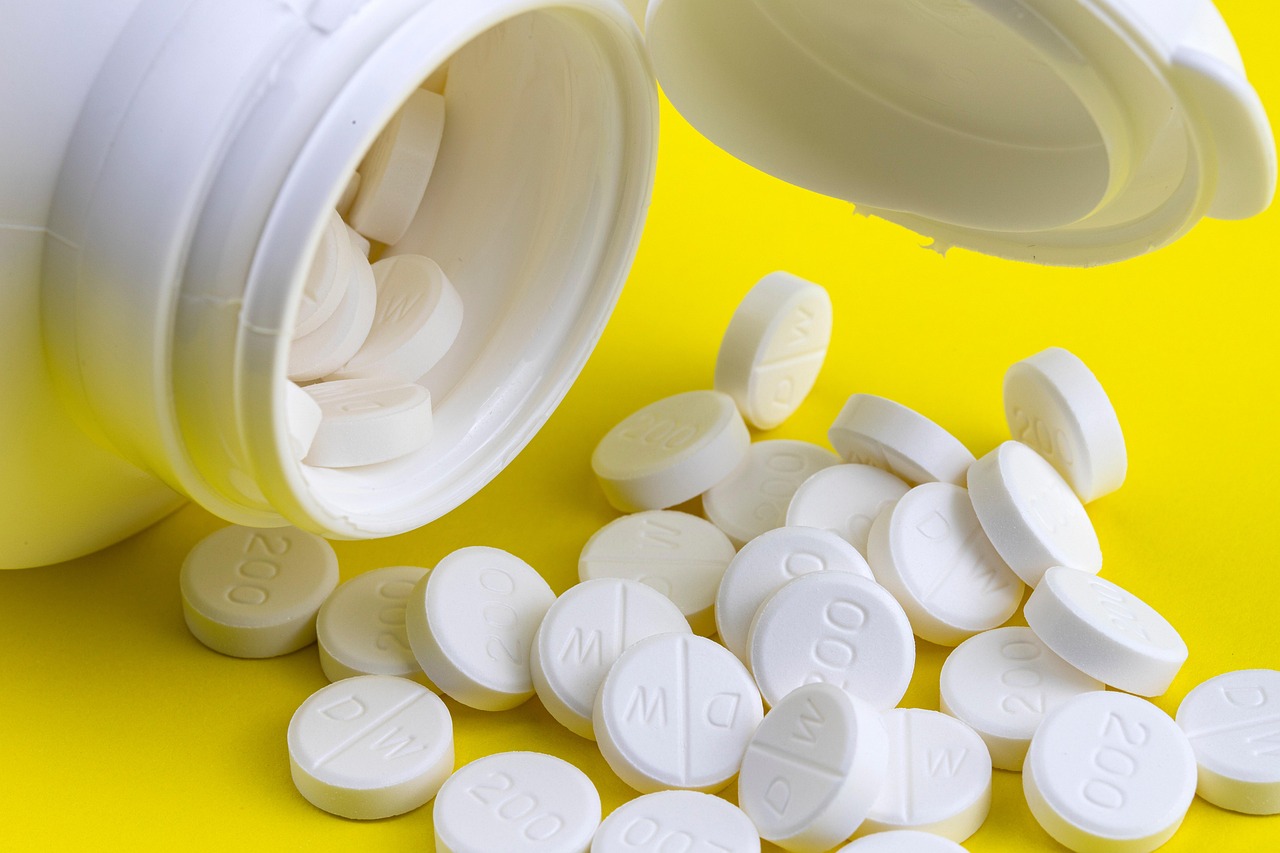
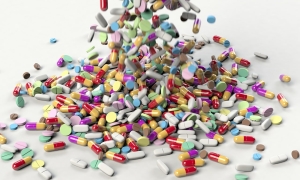

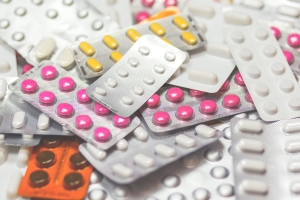
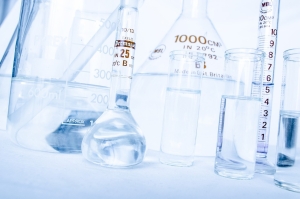
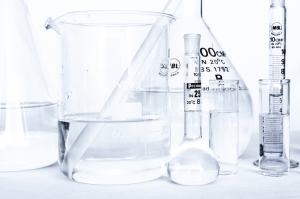




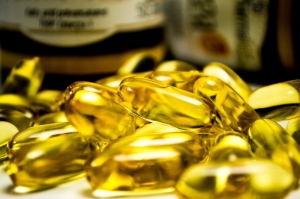
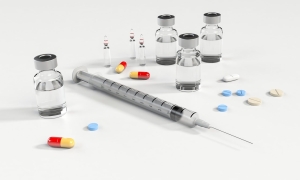
There are no comments